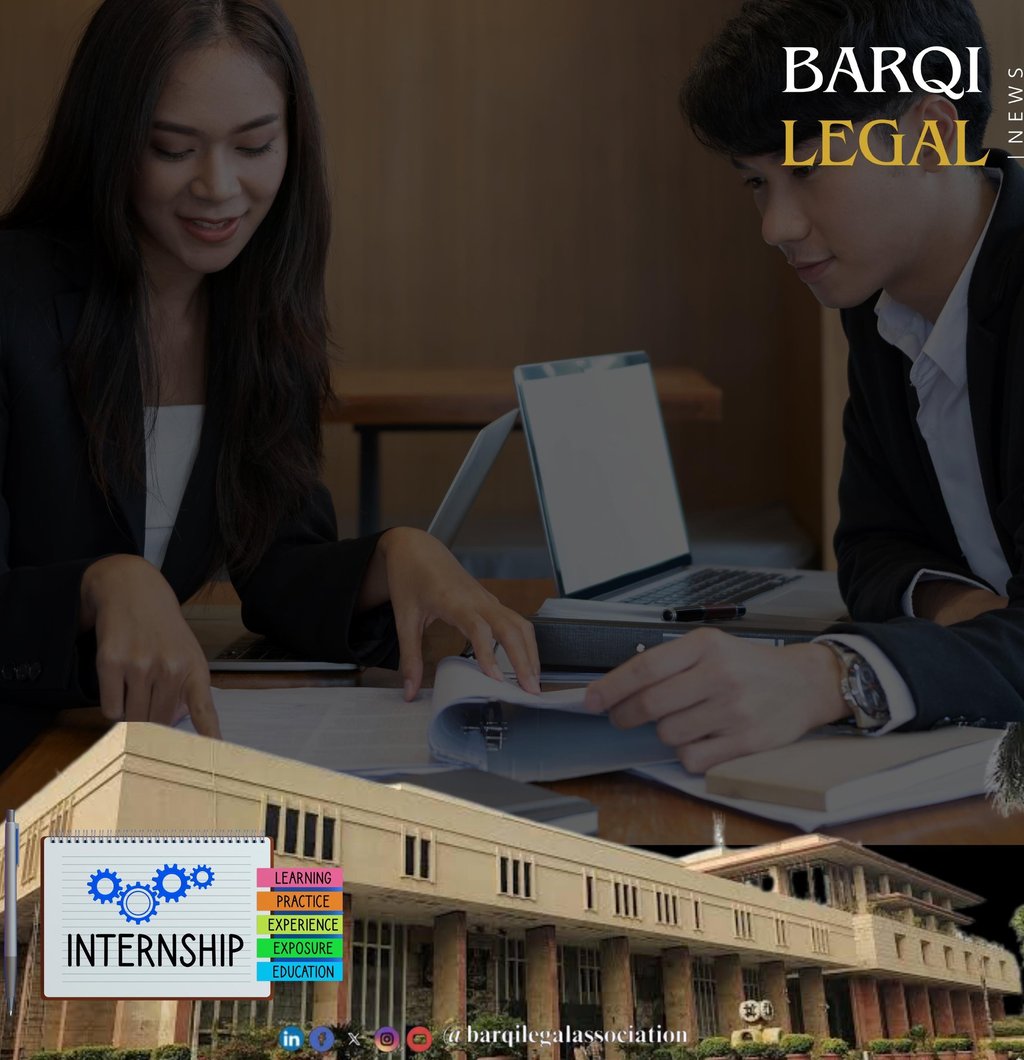Delhi High Court Rules Legal Internships Do Not Qualify as Active Legal Practice
In the case of Ujwal Ghai v. Delhi High Court Legal Services Committee (DHCLSC), the Delhi High Court recently held that legal internships completed during law school do not count as “active legal practice” after enrollment as an advocate.
10/10/20242 min read


In the case of Ujwal Ghai v. Delhi High Court Legal Services Committee (DHCLSC), the Delhi High Court recently held that legal internships completed during law school do not count as “active legal practice” after enrollment as an advocate.
Justice Sanjeev Narula noted that while internships provide valuable practical exposure, they do not meet the professional experience requirement necessary for legal practice.
The Court made these observations while dismissing Ujwal Ghai’s plea, in which he sought to have his name included in the list of shortlisted candidates for an interview for the empanelment of the "Jail Visiting Panel
In Ujwal Ghai v. Delhi High Court Legal Services Committee (DHCLSC), the Delhi High Court ruled that legal internships completed during law school do not constitute “active legal practice” following enrollment as an advocate.
Justice Sanjeev Narula emphasized that while internships provide valuable practical exposure, they do not fulfill the professional experience criteria required for practicing law. The ruling came in response to Ujwal Ghai's petition seeking inclusion in the list of candidates for an interview for empanelment on the "Jail Visiting Panel."
Ghai, who enrolled as an advocate on August 13, 2021, applied for empanelment after the Delhi High Court Legal Services Committee issued a call for applications in June. However, his name was excluded from the shortlist published on September 24. Upon inquiry, Ghai learned that his application had been likely rejected for not meeting the three-year legal practice requirement as of May 31.
Ghai argued that his internships during law school should count toward the three-year experience requirement, but the Court disagreed. Justice Narula dismissed Ghai’s claim that internships should be equated with apprenticeships under legal terminology, stating that internships undertaken as a student do not amount to active legal practice as required under the eligibility criteria.
The Court further noted that some government bodies offer apprenticeship opportunities to law graduates, but such roles are distinct from student internships. Equating law student internships with post-enrollment legal practice would undermine the clear intent of the eligibility requirements, the Court concluded. Ghai’s legal experience, the Court said, must be calculated from the date of his enrollment with the Bar Council, not from his internship period during law school, thus dismissing his plea.
